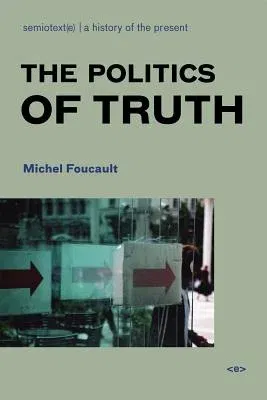Michel Foucault
(Author)The Politics of Truth, New EditionPaperback, 1 June 2007

Qty
1
Turbo
Ships in 2 - 3 days
In Stock
Free Delivery
Cash on Delivery
15 Days
Free Returns
Secure Checkout

Reading Age
Ages: 18
Grade Levels
13
Part of Series
Semiotext(e) / Foreign Agents
Part of Series
Semiotext(e) Foreign Agents
Print Length
200 pages
Language
English
Publisher
Semiotext(e)
Date Published
1 Jun 2007
ISBN-10
1584350393
ISBN-13
9781584350392
Description
Product Details
Audience:
Ages: 18
Author:
Book Format:
Paperback
Country of Origin:
US
Date Published:
1 June 2007
Dimensions:
22.66 x
15.34 x
1.5 cm
Educational Level:
Grade Levels: 13
ISBN-10:
1584350393
ISBN-13:
9781584350392
Language:
English
Location:
Cambridge
Pages:
200
Publisher:
Weight:
308.44 gm